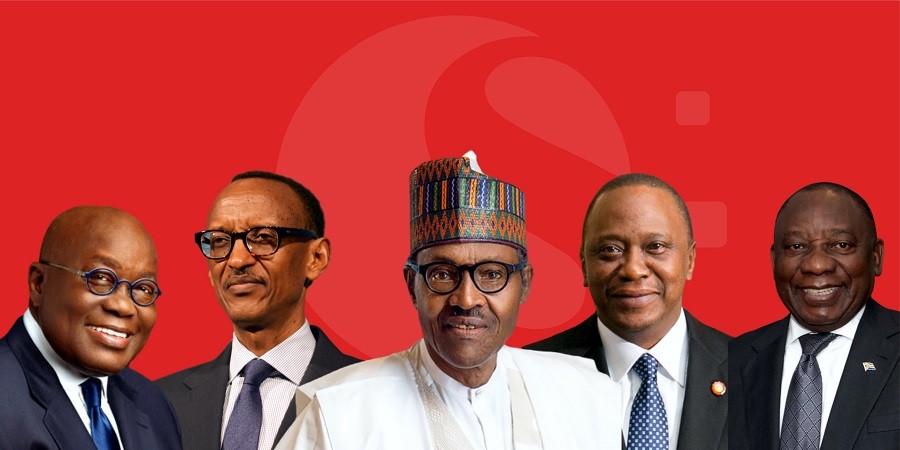

The great disconnect: Why African SMEs are struggling to hire and keep Gen-Z talent
In the bustling streets of Lagos, the startup cafes of Nairobi, and the coworking spaces of Accra, a quiet tension is brewing. It’s not between competitors battling for market share or entrepreneurs chasing after dwindling venture capital. It’s between two worlds colliding inside the same room: African SMEs and the rising wave of Gen Z talent.
For decades, small businesses across the continent thrived on grit, loyalty, and a work ethic carved from necessity. Show up, put your head down, and earn your keep. That was the unspoken code. But today’s young Africans, born into a world of mobile money, YouTube celebrities, and remote work possibilities, are rewriting the script.
It’s not just about a paycheck anymore. It’s about purpose, autonomy, and flexibility. The African dream itself is shifting, and many SMEs are struggling to catch up. The African Youth Survey 2024 indicates that the trend is growing among African youth.
Two generations, two different songs
For SMEs, offering a salary and a stable job used to be enough to inspire loyalty. But for Gen Z, the idea of clocking nine-to-five inside a fluorescent-lit office feels as ancient as cassette tapes.
“Work should fit into my life, not the other way around,” says Tola, a 24-year-old graphic designer based in Lagos. She left a small firm after three months, citing rigid schedules and outdated management practices. “I want to create, to contribute, not just fill a seat.”
This sentiment is echoing loudly across the continent. For many Gen Z Africans, traditional success markers – a stable job, annual promotions, decades of loyalty – feel hollow. They crave workplaces that value their voice, offer flexibility, and are driven by more than profit margins. But not all that glitters is gold.
From the view of many SME founders, a new problem is emerging: commitment. Business owners whisper in exasperation about interns who ghost mid-project, staff who demand remote work but disappear when deadlines loom, and an overall culture that seems allergic to structure and responsibility.
“It’s like trying to build a house with sand,” sighs Ifeanyi, who runs a mid-sized logistics company in Abuja. “You offer them a good salary, a chance to grow, but it’s never enough. They want freedom, but forget that freedom requires discipline too.”
Therein lies the clash: Gen Z sees old models as oppressive; SMEs see Gen Z attitudes as reckless. Both are right, and both are wrong.
A new breed of entrepreneurs
The shift isn’t just theoretical — it’s visible in the rise of young founders like Idorenyin Obong of Grey, simplifying payments for African freelancers, or Farida Kabir of OTRAC, shaping the future of health tech from the ground up.
These young Africans aren’t waiting for permission. They are building their own ladders rather than climbing outdated ones. Elsa Majimbo, the Kenyan internet sensation, famously turned down lucrative contracts from big media houses to retain “creative freedom” — a move that baffled older generations but resonated powerfully with her peers.
For SMEs, the message is clear: the next generation isn’t desperate for jobs. They are desperate for meaning. They will work, and work hard, but only for organisations that align with their values, respect their autonomy, and trust them to shape outcomes, not merely follow orders.
A fractured mirror and middle ground
Still, caution is necessary. Not every Gen Z employee is an agile, mission-driven innovator. Many struggle with resilience, patience, and the slow, often tedious grind that true innovation demands.
The internet has sold a dream of overnight success, remote riches, and endless flexibility. But the realities of building sustainable businesses – especially in Africa’s challenging markets – demand grit, endurance, and uncomfortable growth.
If SMEs must adapt, Gen Z must also mature.
The best young talents are not those who rebel against every structure but those who know how to challenge broken systems while still respecting the architecture of responsibility. So what’s the way forward?
African SMEs must evolve, not by caving to every new trend but by embracing flexibility where it fuels better outcomes. Hybrid work models. Project-based evaluations. Opportunities for creative ownership. Leaders must also rethink communication. Open, honest dialogue about expectations, values, and vision can bridge gaps that no HR policy ever will. Trust, not control, must become the new currency of loyalty.
Meanwhile, young workers must learn that freedom isn’t free. Accountability, perseverance, and the willingness to grow beyond instant gratification will set apart those who thrive from those who burn out chasing the next shiny gig. The smartest SMEs — the ones that will survive this seismic shift — are those that don’t view Gen Z as a problem to fix but as a potential to unlock. A generation brimming with ideas, idealism, and energy — waiting to be channelled, not stifled.
A fluid future
Across Africa, the office of the future is neither fully remote nor rigidly traditional. It’s a blend — a messy, beautiful fusion of ambition, technology, empathy, and human connection. Small businesses that master this blend won’t just hire the best talent, they’ll inspire it.
And for every young African dreaming of freedom, and every SME founder craving loyalty, perhaps the answer lies somewhere between those two hungers: in the hard, hopeful work of building something worth staying for.
Do you have an innovative business (small, mid-scale business or startup) that adds value, creates opportunities or solves bold problems? Then you`ve got a story worth telling? Shoot us an email with the subject “Story Worth Telling (+Name of Business)” to [email protected]




